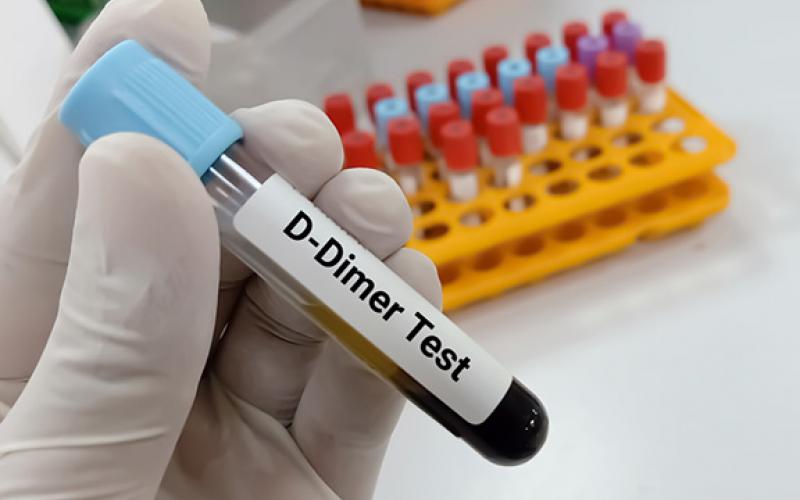When Do Doctors Prescribe the D-Dimer Test?
A D-dimer test can help doctors to determine the level of D-dimer protein in one's body. D-dimer is often undetectable at extremely low levels until one’s body develops and breaks down significant blood clots. A D-Dimer test can help identify if an individual has a blood clotting problem. However, it is not a clear indicator of the condition. A D-dimer test cannot tell you what kind of clotting condition you have or where the clotting is happening in your body. If there are high D-dimer levels in your blood, your doctor may do additional blood tests to reach a final diagnosis. The D-Dimer test is usually prescribed when a doctor suspects these conditions:
Pulmonary embolism (PE)
Pulmonary embolism can develop when a clot forms near the arteries of the lungs. It commonly happens when a blood clot gets stuck in another organ escapes and travels to the lungs. DVT clots are the most common cause of PE.
Signs and symptoms of pulmonary embolism include:
Dyspnoea, fast breathing, or shortness of breath
Sharp chest discomfort that is worsened by coughing or movement
Sweating more than normal
A fast heartbeat (tachycardia)
Back pain
Feeling weak or lightheaded
If you are facing any of the signs of this clotting issue, you should see a medical professional as soon as possible.
Strokes
Strokes can occur when a blood clot limits the blood flow to the brain.
A stroke can cause the following symptoms:
Your face, arm, or leg goes numb or weak all of a sudden, especially on one side of your body.
Sudden difficulty understanding, talking or understanding what is said.
Unexpected vision difficulties in one or both eyes.
Dizziness, unbalance, or impaired coordination can occur suddenly.
A sudden, painful headache with no clear reason.
If you are starting to experience any of the signs of this clotting issue, you should see a doctor right away. So, these are some of the conditions for which your doctor can prescribe you a D-dimer test.




Comments
Post a Comment